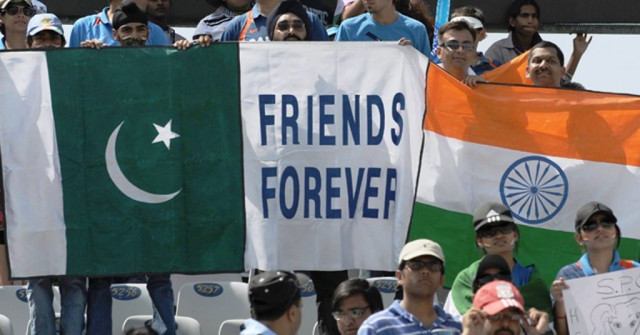Trade talks with India: High hopes, mild expectations in New Delhi
Analysts say main purpose of commerce secretary’s visit is to gain traction on trade liberalisation.

Hopes are high but expectations mild as Pakistan’s Commerce Secretary Zafar Mahmood arrived in the Indian capital on Sunday to provide a fresh impetus to trade talks between the two countries.
The item most likely to top the agenda would be multi-entry visas to businessmen on both sides, Indian officials say, followed by the operationalisation of the most favoured nation (MFN) status to India.
The Pakistani cabinet recently granted an approval to the commerce ministry to negotiate the implementation of the MFN status with India.
Mahmood will meet his Indian counterpart Rahul Khullar on Monday, and review the decisions the two commerce secretaries had taken during their last meeting in Islamabad in April, which was seen as a milestone for bilateral trade between the neighbours.
“Don’t expect earth-shattering announcements,” warns Pradeep Mehta, secretary general of a Jaipur-based NGO.
“The main purpose of the visit is to get some traction on several other issues like the negative and positive list, reduction of non-tariff barriers, visa liberalisation and so on,” Mehta said.
Besides MFN, both sides have decided to establish a preferential trade agreement that will see tariff reduction on a number of items that are traded between both countries and in larger quantities, reduction of sector-specific tariff and non tariff barriers.
Both sides are also working towards creating a multiple-entry visa for businessmen from both sides. At present, the home ministry is examining the issue.
“What had happened in April was a major step, but the level of implementation has become a drag,” said Ram Upendra Das, senior fellow at the Research and Information System for Developing Countries.
“Nevertheless, overall there is a forward movement despite fluctuations and volatilities. At least both sides are now talking, which is important,” Das added.
Both sides have also agreed to expand trade in all types of petroleum products and electricity.
Trade between the two countries stood at $2.6 billion in 2010-11. Both sides have set a target of $6 billion worth of bilateral trade in the next three years.
At present, more than 12,000 items are there on Pakistan’s negative list while 1,948 items come under the positive list.
Meanwhile, Pakistan is expected to prune its negative list of items soon, allowing India to export its textiles, engineering goods, chemicals, raw materials, spices and other such materials to Pakistan.
Published in The Express Tribune, November 14th, 2011.



















COMMENTS
Comments are moderated and generally will be posted if they are on-topic and not abusive.
For more information, please see our Comments FAQ